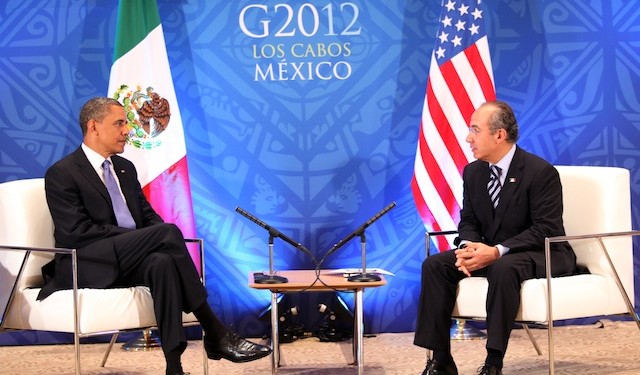Spanish language institutions in Mexico see the inclusion of their country into the Trans Pacific Partnership (TPP) as an opportunity to inject life into a market that has been dwindling over the past four years due to reports of security risks and the global economic crisis.
News and business analysis for Professionals in International Education
Have some pie!
Trade group could rouse Spanish market in Mexico

Last month the United States and eight other countries welcomed Mexico into talks to establish the TPP, a free trade group aiming to reach the Asian pacific markets, after talks between US President Barack Obama and Mexican President Felipe Calderon at the Group of 20 leading economies summit in Los Cabos, Mexico.
“We see an opportunity thanks to the TPP to attract people from industries like law enforcement, medical services, tourism and global business,” said Juan Carlos Delgado, co-founder and managing director of Solexico Spanish language centres. “What we want is to see movement in the market to attract people back to Mexico as a place to learn Spanish as a second language.”
President Calderon, called the announcement “a great piece of news” that would help Mexico expand its economy and create more jobs at a time when some other countries are facing slowdowns.
Some experts have called TPP a modernised version of the North American Free Trade Agreement (NAFTA)which Mexico has partnered with the United States in since it went into force in 1994.
“This is one of the free trade initiatives that’s most ambitious in the world and would foster integration of the Asia Pacific region, one of the regions with the greatest dynamism in the world,” said President Calderon.
If the trade agreement is successful, North American and Asian business will find Spanish beneficial to increase their chain of supplies to businesses in Peru, Chile and Mexico.
Other TPP member countries include Brunei, Singapore, New Zealand, Australia, Vietnam, Malaysia and Canada.
“This year we have seen the downturn level out in our market thanks to economies like Brazil in our region”
“The relationship between businesses is always better when the people involved know something about the other’s culture,” said Delgado. “You create a bond with that person and you show them that you have a personal interest in the culture of the country where you’re trying to do business.”
With four locations around Mexico, Solexico has been operating for 15 years but has seen a 40% decline in numbers since 2008 as a result of warnings of security risks in the country and the economic crisis. “Before it was very easy. When someone wanted to learn Spanish they automatically thought about Mexico, especially from the US market,” said Delgado.
But, the success from neighbouring emerging markets is starting to have a knock-on effect. “This year we have seen the downturn level out in our market thanks to economies like Brazil in our region,” commented Delgado.
Solexico is looking to break away from reliance on the US and aims to attract students from emerging economies with its Spanish courses for professionals. The Mexican government’s easing on visa processing for Brazil, Russia and the Ukraine helps says Delgado.
Still looking? Find by category:


